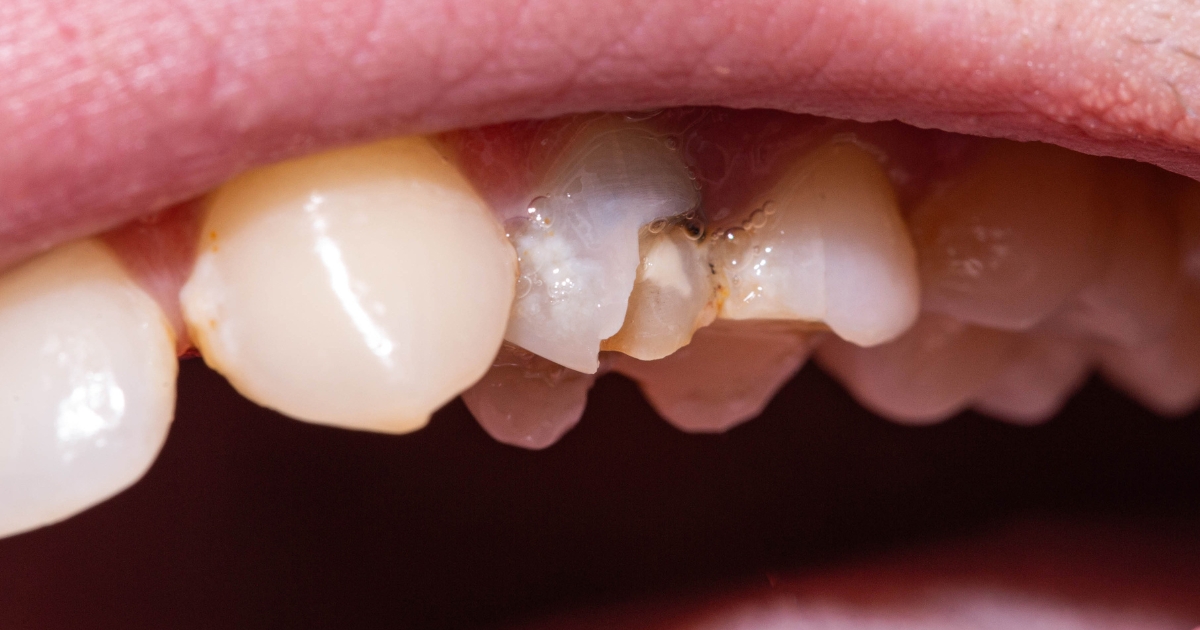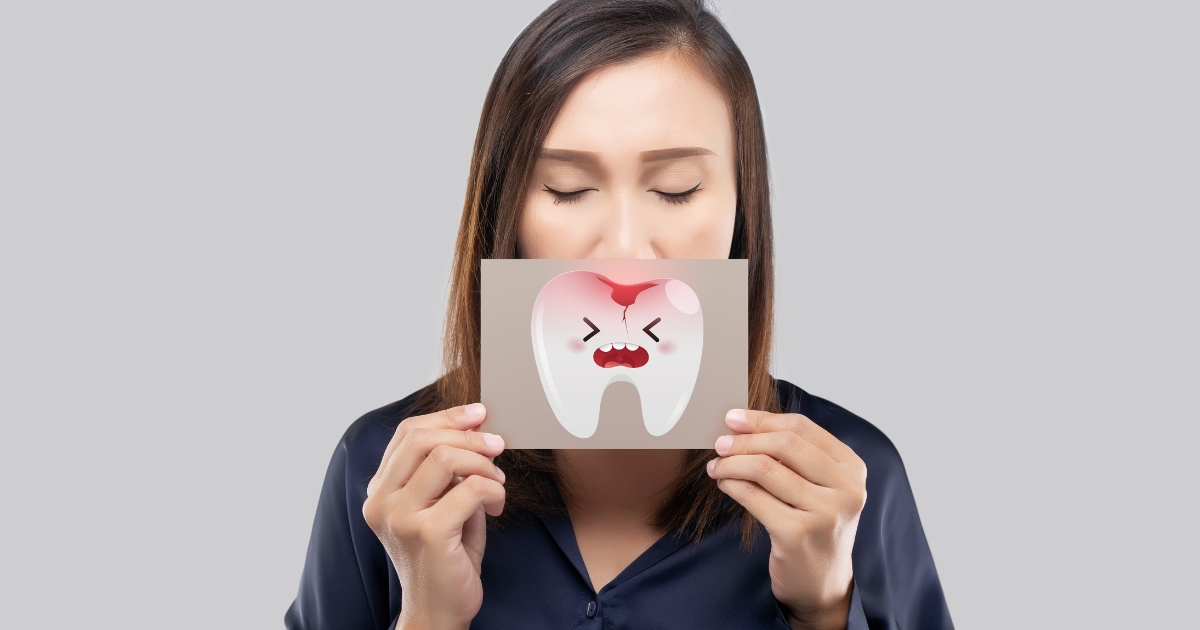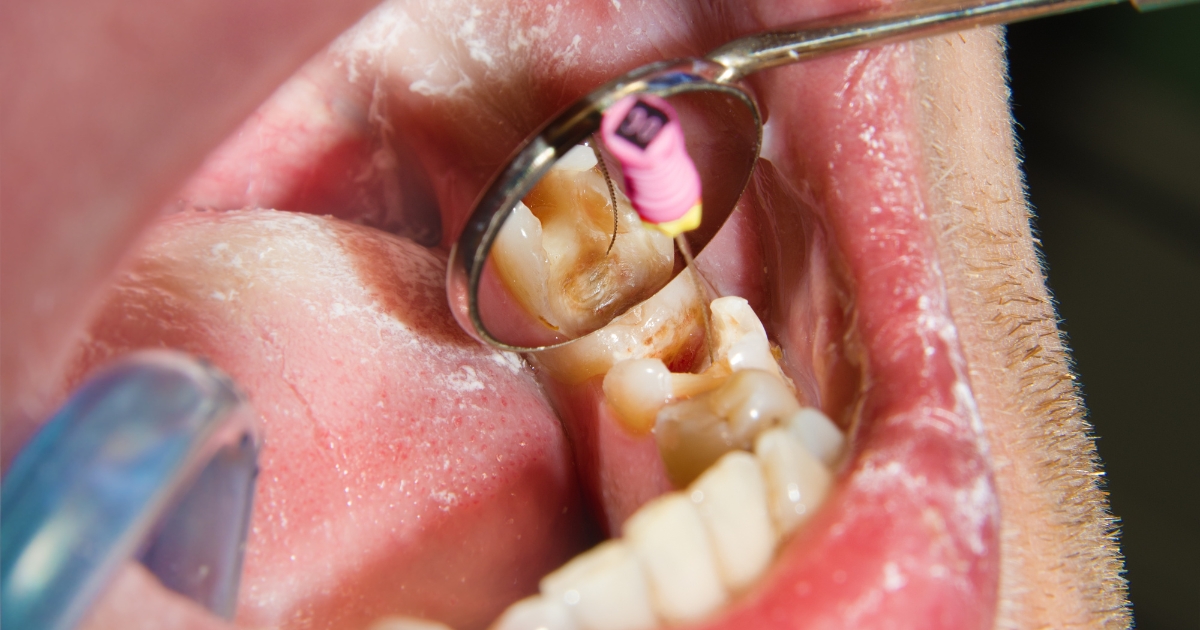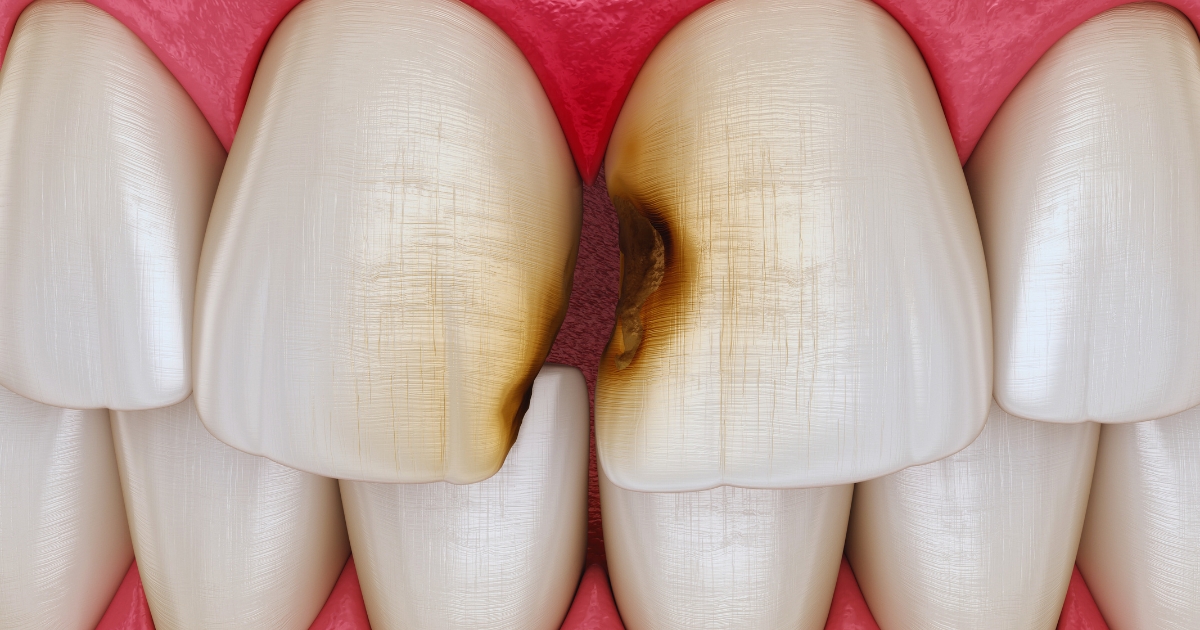Call Us Today 817-737-7668

Have you ever bitten into ice and noticed that creepy crack? Chipped teeth! Due to a sudden bump or biting into a renegade popcorn kernel, a chipped tooth can be anyone’s surprise guest.
Most people downplay small chips by thinking, “It’s just a small nick.” Wrong move! If you ignore a chipped tooth, it can develop into larger oral complications. From sensitivity to extreme infections, a chipped tooth is more than an aesthetic issue.
If you are curious about how to repair chipped teeth, this blog can help. It discusses treatment, from temporary solutions to more serious treatments such as endodontics. Find out which option is right for your smile. You will also learn how to prevent a chipped tooth in the future.
Causes of a Chipped Tooth
Chipped teeth tend to happen when you least expect them. Here are some common offenders:
Biting into Hard Foods: Munching ice, nuts, or hard candies can simply lead to a chipped tooth. A plain old sandwich with an unforeseen bone may also prove troublesome.
Accidents or Injuries: Impacts during sports, falls, or sudden bumps might chip a tooth. Sports involving high contact with no mouthguards are high risk.
Grinding Teeth (Bruxism): During sleep, bruxism erodes enamel. It sets teeth up for chipping. Grinders may not realize they grind until a tooth gets chipped.
Tooth Decay or Weakened Enamel: Cavity formation and neglect of good oral hygiene can soften enamel. Weak teeth are more prone to chipping, mainly when they are under stress.
You must know these causes to prevent a chipped tooth. Being aware throughout normal activities has the ability to preserve your smile.
Why Is It Important to Fix a Chipped Tooth?
A chipped tooth might seem minor. However, it is capable enough of leading to significant problems:
Prevent Further Damage: If you ignore chipped teeth, they can cause deeper fractures. Small chips can spread. Moreover, they can result in tooth to crack or break further.
Avoid Tooth Sensitivity or Infection: A chipped tooth has the ability to expose dentin and cause pain. A deep enough chip may expose the pulp. It necessitates endodontics to avoid infection.
Restore Confidence and Smile: A chipped tooth, particularly a front one, impacts your appearance. When you repair it, it will enhance your appearance and increase your confidence. Prompt treatment for a chipped tooth will maintain long-term dental health and comfort.
Treatment Options for a Chipped Tooth
a. Dental Bonding
Dental bonding involves using a tooth-colored resin to fix a chipped tooth. The dentist places the resin, molds it, and hardens it with a light. Ideal for small chips. Bonding is fast and inexpensive. However, they are less long-lasting than other treatments.
b. Dental Veneers
Veneers are thin porcelain shells. They cover the front of a chipped tooth. As a result, they provide a natural appearance. These solutions are best suited for front teeth. Veneers are strong and aesthetically pleasing. However, they may be more costly.
c. Dental Crowns
A crown is a cap that covers the whole tooth. It is best for large chips or if the tooth is badly damaged. Crowns are durable and long-lasting. However, they can be more complicated.
d. Dental Filling
A filling may reshape the tooth to fix small chips, mainly on the molars. Fillings are simple and efficient for minor chips. It is to be stated that they are not as aesthetics-oriented.
e. Root Canal and Crown (For Extensive Damage)
If the chipped teeth reveals the pulp, endodontics in Frisco (root canal treatment) may be required. The procedure involves the removal of the affected pulp before capping the tooth with a crown. It is crucial as it preserves the tooth. However, it is a more complex process.
f. No Treatment (In Some Cases)
When to Avoid Treatment: Tiny chips may not require treatment. Still, the tooth ought to be tracked for changes or heightened sensitivity.
How to Pick the Best Option for You?
Choosing the most appropriate treatment for a chipped tooth is based on the following:
Degree of Chip: Small chips could require bonding only, whereas serious damage could involve endodontics and a crown.
Cost vs. Durability: Budget against long-term gain is the determining factor. Crowns and veneers are durable. However, they are more expensive than bonding.
Cosmetic Objectives: Usually, front teeth require a natural and glossy look. This is why veneers are one of the most sought-after options.
Visiting a dentist guarantees an individualized strategy for your damaged tooth. They can evaluate your case and also prescribe the best solution.
What to Do If You Chip a Tooth?
You must react quickly to prevent more damage when experiencing a chipped tooth:
Immediate Action
Rinse your mouth with warm water. You must try to preserve the tooth fragment if possible. Moreover, you have to steer clear of hard foods and eat only soft foods until you visit a dentist.
When to Visit a Dentist?
Excruciating pain, rough edges, or sensitivity indicate you need a professional. The sooner you visit a dentist after chipped teeth, the better the prognosis. These steps can help avoid complications and provide a more straightforward treatment process.
A chipped tooth is more than just a minor bother. Fast treatment and proper care can restore your smile and save you from future dental issues. Whether you need bonding, veneers, crowns, or even endodontics, each solution has its advantages.
Talking to our dentist will ensure you take the best route for your chipped tooth. Don’t let a small chip become a large problem. Book a dental appointment with our dentist today and treat your smile to the attention it needs!





